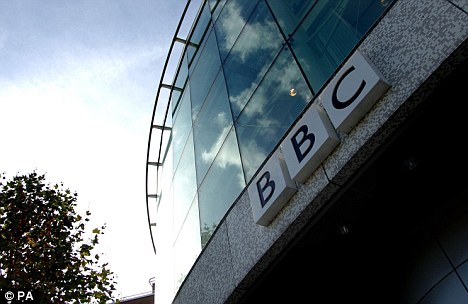PwC pay gap review finds “no evidence of gender bias” at BBC
Although it did not find evidence of overt gender bias, the report outlined “anomalies that need addressing” in the broadcaster’s pay structures
Although it did not find evidence of overt gender bias, the report outlined “anomalies that need addressing” in the broadcaster’s pay structures

The findings of the hotly anticipated PwC review into BBC pay gap policies have been released, finding there is “no evidence of gender bias” regarding pay decisions at the BBC.
Although it did not find evidence of overt gender bias, the report outlined “anomalies that need addressing” in the broadcaster’s pay structures.
Intense public debate over perceived gender bias within the BBC was sparked by the broadcaster’s publication of pay details of its on-air staff earning over £150,000 in July 2017, which revealed two-thirds of the highest earners to be male. The highest male earner was Chris Evans, who netted £2.2m in 2016 in comparison with a pay check of under £500,000 for the top-earning female star, Claudia Winkelman.
Public furore was compounded by the resignation of BBC China editor Carrie Gracie over the corporation’s “secretive and illegal pay culture”, which she said allowed pay inequality between genders to thrive.
What did the report find?
Looking at the pay of 824 individuals working as presenters, on-air editors and correspondents for the BBC, the report found a 6.8% median gender pay gap.
A review undertaken by PwC in conjunction with Eversheds released its findings in October 2017, finding a 9.3% pay gap across the BBC in general. This is compared with the national average of 18%.
PwC said: “Our analysis has shown that, where pay differences have been identified amongst employees in similar roles, these are typically driven by material and justifiable factors unrelated to gender.”
The report noted the BBC’s “lack of consistent framework” in its approach to pay, which it said was “not uncommon for a highly skilled and diverse group of this type” but still “falls below the high standards that the BBC sets for itself and which the licence fee paying public expect.”
It attributed the gender pay discrepancies as being due to a lack of clarity in pay frameworks, which led to too many pay decisions being made at local levels, a lack of transparency around pay decisions and a “significant pay restraint” within the corporation, which led to a slower rate of pay progression for both men and women over the past decade.
The report also noted that high profile individuals who work across genres or “whose profile with the audience is high” are typically paid more, and that those individuals “right at the top, are mostly men”.
“Whether or not this has been appropriate historically, the news market has changed and the BBC has started to adapt to this.”
PwC made a series of recommendations to promote fairness in the corporation’s pay policies, including implementing clear and appropriate pay frameworks, introducing narrow pay ranges attached to job groups, harmonising contracts and improving transparency through publishing pay ranges.
In response to PwC’s findings the BBC said there would be “substantial” pay cuts for some men and pay rises for some men and women.
Prior to the findings being published several prominent male BBC presenters, including Huw Edwards and Jeremy Vine, had already announced they would take pay cuts.
The BBC also said it has addressed almost half of the 230 pay unfairness cases that it is currently facing and aims to conclude the rest by the summer.
Why is the report being criticised?
In its report PwC stated: “We have seen real commitment at the BBC to addressing both the underlying pay structure and perceptions of that structure.”
Detractors wonder whether the report purely serves the latter purpose.
Speaking to BBC’s World at One, presenter Jane Garvey said: “This is a PwC report commissioned by the BBC and, without being overly cynical, I might venture to suggest that PwC has delivered the report the BBC has asked for.”
The BBC Women campaign group, which represents over 170 presenters and producers, questioned the report’s methodology, stating: “There’s been no transparency on which individuals were included or why.”
“The BBC has chosen who to compare with whom, and what factors justify any gaps in pay. The only mention of equal pay in the letter of engagement with PwC refers to an ‘assessment of equal pay risks’”.
In a letter sent to various media outlets, a BBC newsreader is quoted as saying: “The lack of transparency and the narrow scope mean staff are not likely to trust the findings. We cannot find anyone covered by the review whom PwC has spoken to.”
The Big Four firm included a disclaimer that its report is “not, and nor is it intended to be, a comprehensive review of the pay of each and every individual employee” and therefore cannot be taken as conclusive evidence that no individual equal pay issues exist.
What’s next?
In a statement the broadcasting behemoth re-iterated its goal to achieve 50/50 gender representation by 2020, which it will continue to strive towards bolstered by a “wide-ranging and significant overhaul of how we manage on-air pay”.
BBC director-general Tony Hall commented: “Today’s report does not find evidence of gender bias in decision-making, but it shows that we have real and important issues to tackle, particularly in some areas of news and current affairs, and I’m determined to get it right.”
The broadcaster has made bold pledges towards gender equality in the face of mounting public pressure, but only time will tell whether these changes will produce true pay parity.
Last year the BBC announced the National Audit Office (NAO) will become their external auditors for the financial year 2017-2018, taking over from EY.